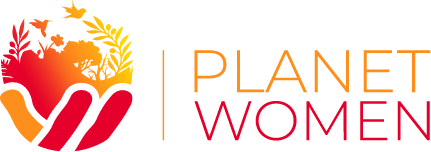Thoughts on the Loss of Roe v. Wade
A message from Kristine Zeigler, Planet Women’s CEO, on today’s decision by the U.S. Supreme Court to overturn Roe v. Wade, which for 50 years has protected American women’s right to have an abortion and control their own bodies.
A calming photo to breakup the doom scrolling. Gualala River, CA. © JoJo Marshall
What kind of leadership traits are necessary to care for our planet and ensure everyone is on equal footing to build a sustainable future? In the literature, there are male-attributed leadership characteristics, like aggression, risk taking or charisma; and there are female-attributed characteristics, like empathy, collaboration and compassion. Many of us leaders don’t want to be defined in such a binary way. We don’t want to say that women are better leaders just by virtue of their gender, it’s too simplistic. Some women have told me that the dominant paradigm works, so you just need to figure out how to play the game to get ahead and get power and resources. Well, it’s not good enough for me, we need a new leadership paradigm.
The data is clear. There are not enough women and people who identify as women in charge. Of anything. Men are in charge of 94% of all governments on this round, blue Earth. They hold 75% of all parliamentary seats. Men run 93% percent of all Fortune 500 companies. Seventy-four percent of all U.S. Senators are men, as are 82% of all U.S. governors.
And now, today, I believe we see the result of that. The Supreme Court’s decision to overturn Roe v. Wade harms women and marginalized peoples. This has created government-mandated pregnancies where the woman’s life comes second, always.
There are women on the Supreme Court; it’s true. And yet, not all the female justices believe that women and men have equal rights. Not all of them wish to see increased investment in gender-responsive social protection and public services. And clearly, they don’t all want to see more women represented in policy making agencies.
What can we do? Like feminist scholar and author bell hooks, we can seek roles for ourselves that will liberate rather than restrict and confine. We can emphasize an ethic of mutuality and interdependence to end domination and reduce inequality. Hooks writes that the emotional well-being of all peoples would be enhanced if we all embrace feminist thinking and practice. When our love is rooted in acknowledgment, recognition, care, responsibility, commitment, empathy and compassion, we can re-envision a world without sexism.
Consciousness-raising groups have always been a pillar of feminism, and we need them more than ever.
I agree with author Susan Douglas. “More and more people are hungering for an antidote to selfishness and inequality. They want policies built on a structure of care,” she writes in In Our Prime: How Older Women Are Reinventing the Road Ahead. Douglas goes on to say that, “Many girls and women of all ages are seeing, starkly, how sexism and patriarchy still structure our society, our politics, and our culture at their very core.”
Given how many healthy, vibrant, thriving, even wealthy women over the age of 50 there are today — more than at any other time in human history, it’s time to follow Douglas’ lead and create a lifespan of feminism across generations. Women over 50, after all, control half of the country’s discretionary income and 75% of the country’s wealth.
How do we do it? As Douglas suggests: we convene older and younger women, we share stories, listen to each other, and forge intergenerational ties — bridges — that help construct a notion about, and policies for, women and girls of all ages, races, classes and identities. Together, we can create the culture of care and mutuality that we aspire to see in America.
But first, we grieve and share anger.
Kristine Zeigler is CEO and co-founder of Planet Women, a start-up nonprofit that addresses climate change and other conservation challenges through projects led by women and for women around the world. She is also a creative writer and published author. Read more about her here.

